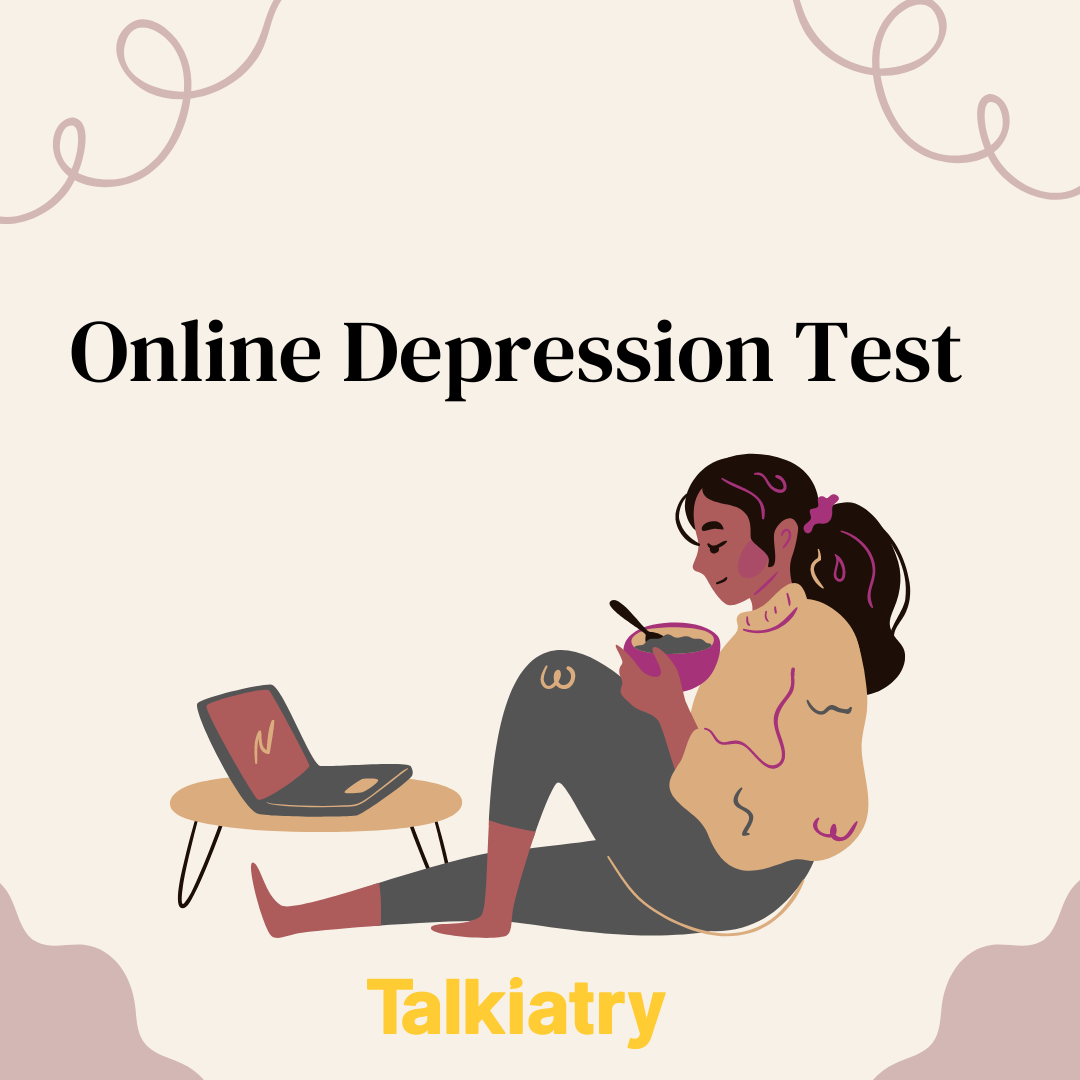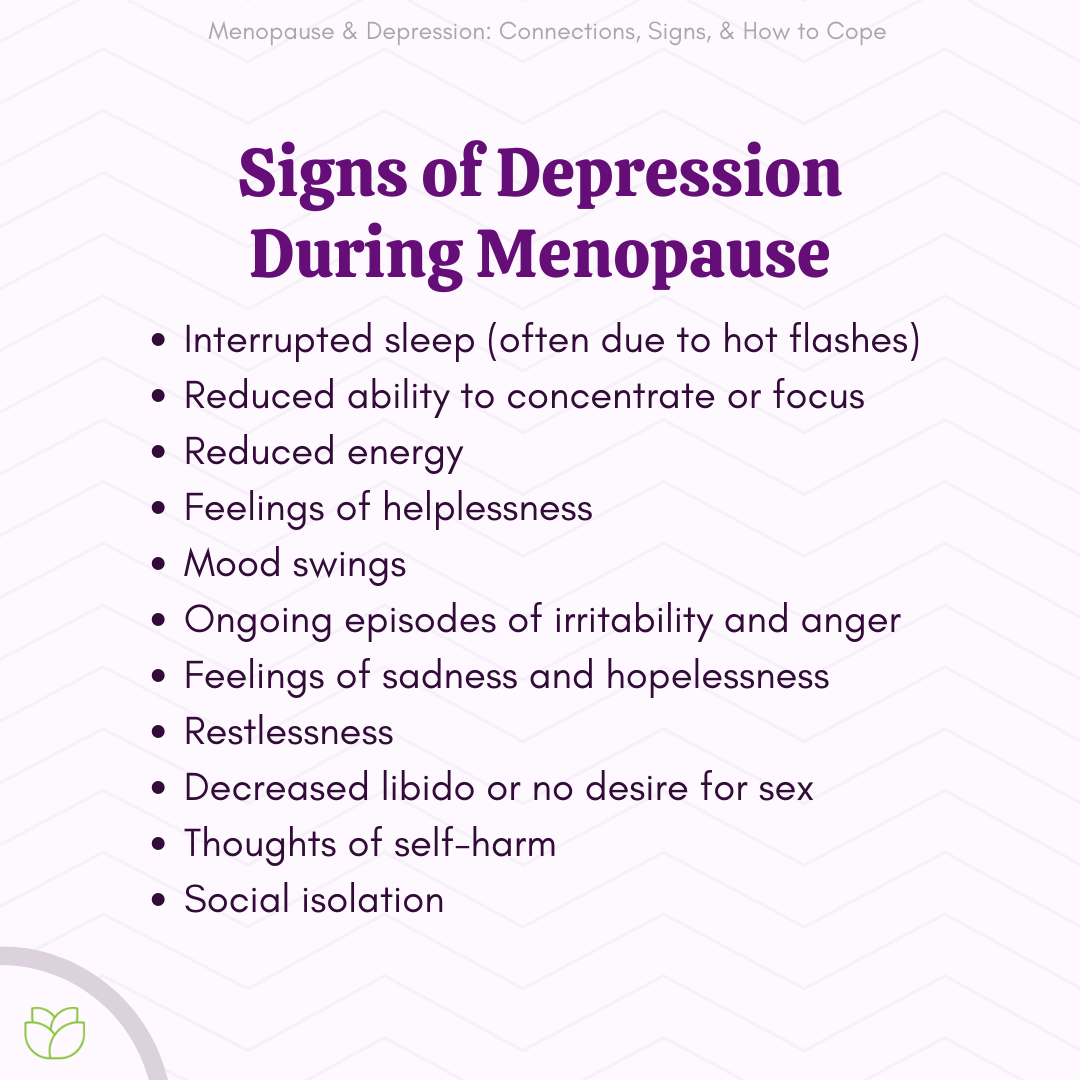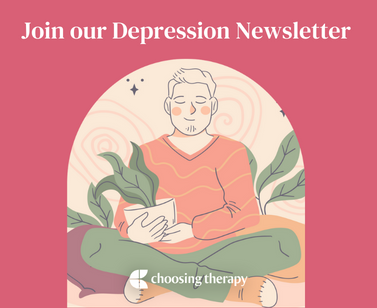Depression is one of the most frequent mood disorders women can experience during menopause. This is especially true for women with a history of depression. Psychotherapy and medication management are common treatment options that offer successful outcomes for menopausal depression.
Depression Is Treatable With Therapy
Would you like to feel more happiness and joy? BetterHelp has over 20,000 licensed therapists who provide convenient and affordable online therapy. BetterHelp starts at $65 per week. Take a Free Online Assessment and get matched with the right therapist for you.
What Is Depression?
Depression is a mood disorder that affects a person’s thoughts, feelings, and behaviors. Most people experience symptoms of depression on occasion, but people with diagnosable depression experience symptoms for at least two weeks on a near daily basis. Depression symptoms include a consistent low mood, lack of energy and motivation, and changes in sleep and appetite that interfere with their ability to function.
Is There a Link Between Menopause and Depression?
There is a direct relationship between menopause and depression. Falling estrogen and progesterone levels can trigger mood swings that make you less able to cope with stress.1 Hormonal dips can also set off depressive episodes. Interrupted sleep due to hot flashes contributes to depression.
Additionally, menopause occurs during midlife, a time when women experience loss and stress. The accumulation of life changes can fuel symptoms.
Can Menopause Cause Depression?
The hormonal changes that happen during menopause, as well as shifts in life stages and potential difficulty sleeping, can lead to a higher risk for depression. Menopause & anxiety can also be linked.
Hormonal Fluctuations
There is a long period of time leading up to menopause that involves substantial hormonal changes, which can impact mood and affect. Given that the menstrual cycle is changing, hormones are fluctuating frequently and rapidly, including brain chemicals such as serotonin.
When hormone levels drop, so do brain chemicals, which can lead to feelings of depression and irritability. These hormone changes can also lead to mood swings and it can take time to adjust to this new normal.2
Sleep Problems
During the process of menopause, due to changes in the body and brain, having bouts of sleeplessness and insomnia is common. This is typically due to the temperature shifts women experience, often referred to as hot flashes. The lack of sleep also can lead to deeper feelings of depression.
Life Changes
Menopause typically falls during a particularly stressful point in someone’s life, when they may be balancing caregiving for both children and older parents. When someone is dealing with heavy issues related to parents’ health, children’s lives, career aspirations and their own personal health issues, it can lead to caregiver burnout and more feelings of depression.
Signs of Depression During Menopause
Experts on women’s health believe that estrogen interacts with chemicals in the brain, ultimately affecting mood. In some women, the decrease in estrogen during the time surrounding menopause (i.e., perimenopause) may lead to depression.3 In addition to mood swings, signs of menopause depression include reduced energy and ability to concentrate.
Researchers note that depression symptoms may differ due to the woman’s age and specific stage of the menopausal transition.4
Signs and symptoms associated with depression during menopause include:
- Interrupted sleep (often due to hot flashes)
- Reduced ability to concentrate or focus
- Reduced energy
- Feelings of helplessness
- Mood swings
- Ongoing episodes of irritability and anger
- Feelings of sadness/hopelessness
- Restlessness
- Decreased libido or no desire for sex
- Thoughts of self-harm
- Social isolation
If You’ve Been Diagnosed with Depression In the Past
Those who have experienced depression, including postpartum depression, are at a higher risk of developing menopause depression.1 Another higher risk group is women who have had severe premenstrual syndrome (PMS) or premenstrual dysphoric disorder (PMDD). Those who had severe PMS when they were younger may have more serious mood swings during perimenopause.2
Does Depression Go Away After Menopause?
When menopause is over, the resulting hormonal imbalance stabilizes. As such, depression and other mood fluctuations tend to stabilize, too. However, if there was a previous diagnosis of depression, there’s a higher risk of continued depression. One report concluded that most women transition to menopause without mood disturbance, but perimenopause may represent a more vulnerable time with risk increasing from early to late perimenopause and decreasing postmenopause.4
Help For Depression
BetterHelp – Get help from a licensed therapist. BetterHelp offers convenient and affordable online therapy starting at $65 per week. Free Assessment
Talkspace – Online Therapy With Or Without Insurance. Talkspace accepts many insurance plans including Optum, Cigna, and Aetna. Typical co-pay is $30, but often less. Get started
Menopause Depression Treatment
If you experience four or five common symptoms of menopause depression daily for two weeks or more, consider seeing a healthcare professional. Mental health professionals can screen you using tools like the Patient Health Questionnaire-2 (PHQ), which confirms the presence of depressive symptoms, and the PHQ-9, which rules out physical or medical causes for those symptoms.
Here are four treatment options for depression with menopause:
1. Hormone Replacement Therapy (HRT)
This treatment helps stabilize mood swings due to hormonal imbalance. It centers on adjusting estrogen levels and can be done by endocrinologists, internists, family medicine physicians, and obstetrician-gynecologists. HRT has been successful at alleviating symptoms of depression; however, there are risks.
Speak to your physician about the pros and cons of HRT to determine whether it’s the best treatment option for you.
2. Medication
If your depression is severe and impacting your ability to function, medication for depression may be used. The recommended medications for depression stemming from menopause are selective serotonin reuptake inhibitors (SSRIs).3 Examples of these include Prozac (fluoxetine), sertraline (Zoloft), paroxetine (Paxil), and citalopram (Celexa). Medications have risks of side effects. Talk with your doctor about the pros and cons of medication to decide what’s right for you.
3. Psychotherapy
There are two types of depression therapy that can help treat menopause-related depression:
- Interpersonal therapy focuses on strengthening relationships and enhancing communication.
- CBT for depression is a short-term therapy that involves associating physical symptoms with thoughts, feelings, and behaviors. It teaches patients to alter negative thoughts and feelings to create positive outcomes.
4. Exercise
Exercise offers many health benefits. It boosts endorphins that can reduce depression and increase your sense of well-being. In addition, it is a way for women with menopause to regain control of a seemingly out of control body.
When to Seek Help For Depression & Menopause
If you notice depressive symptoms emerging and lingering during menopause or perimenopause, discuss your concerns with your primary care physician (PCP) or obstetrician-gynecologist. Describe your symptoms and how they impact your daily life. From there, look for a therapist with experience in women’s health and depression.
Consider starting your search with an online therapist directory, making sure the therapist is licensed and certified. Be sure to check the specifics of your insurance coverage for mental health services as well.
7 Natural Remedies For Menopause Depression
Lifestyle changes can improve your quality of life while coping with menopause depression. These techniques are designed to help you regain control over your body and mind during challenging times. Do some research to determine which options feel most comfortable for you.
Here are seven ways to cope with menopause depression:
- Use herbal remedies: for mild to moderate depression, consider herbal remedies such as St. John’s Wort. Herbal remedies can interact with many medications, it is important to talk with your doctor or pharmacist before starting any herbal medication to ensure it is safe for you.
- Reimagine your priorities: break large tasks into smaller ones, set some new priorities, and do what you can, as you can
- Wait to make big decisions: postpone important decisions until the depression has lifted2
- Practice mindfulness: mindfulness techniques like yoga, meditation, deep breathing, and guided imagery are excellent coping methods that help you relax and slow down
- Get as much sleep as you can: make an effort to grab a nap whenever you can
- Be cognizant about connecting with others: isolation can enhance and perpetuate depression. Try to maintain social interactions with family and friends as much as possible, and be with people who make you feel relaxed. If you have women in your network who are experiencing menopause, reach out for support.
- Engage in exercise at a comfortable level: first, consult with your doctor. Physical activity is a proven stress reducer, which can alleviate depression.
What Can I Do About My Changing Body Image?
It can be difficult to deal with the changes that bodies go through during menopause, such as shifts in body shape and weight distribution. It can feel like you are not in control of your body as you can do everything right and still not have the shape you once had or the shape you want.
Learning to accept who you are beyond your body image will be important during this time. Finding other people in similar situations and spending time with people who love and support you can also help add more joy to your life. It’s important to try to continue to stay on your journey of self-love during this time and have grace for yourself.
Final Thoughts on Dealing With Menopause & Depression
If you find that menopause depression is altering your relationships, ability to work, or your quality of life, take action and consult a healthcare professional as soon as possible. Learn as much as you can about depression linked to menopause so you have a better understanding of what is happening and why.
Additional Resources
To help our readers take the next step in their mental health journey, Choosing Therapy has partnered with leaders in mental health and wellness. Choosing Therapy is compensated for marketing by the companies included below.
Talk Therapy
Online-Therapy.com – Get support and guidance from a licensed therapist. Online-Therapy.com provides 45 minute weekly video sessions and unlimited text messaging with your therapist for only $64/week. Get Started
Online Psychiatry
Hims / Hers If you’re living with anxiety or depression, finding the right medication match may make all the difference. Connect with a licensed healthcare provider in just 12 – 48 hours. Explore FDA-approved treatment options and get free shipping, if prescribed. No insurance required. Get Started
Depression Newsletter
A free newsletter from Choosing Therapy for those impacted by depression. Get helpful tips and the latest information. Sign Up
Learn Anti-Stress & Relaxation Techniques
Mindfulness.com – Change your life by practicing mindfulness. In a few minutes a day, you can start developing mindfulness and meditation skills. Free Trial
Choosing Therapy Directory
You can search for therapists by specialty, experience, insurance, or price, and location. Find a therapist today.
Online Depression Test A few questions from Talkiatry can help you understand your symptoms and give you a recommendation for what to do next. Best Online Psychiatry Services Online psychiatry, sometimes called telepsychiatry, platforms offer medication management by phone, video, or secure messaging for a variety of mental health conditions. In some cases, online psychiatry may be more affordable than seeing an in-person provider. Mental health treatment has expanded to include many online psychiatry and therapy services. With so many choices, it can feel overwhelming to find the one that is right for you.











